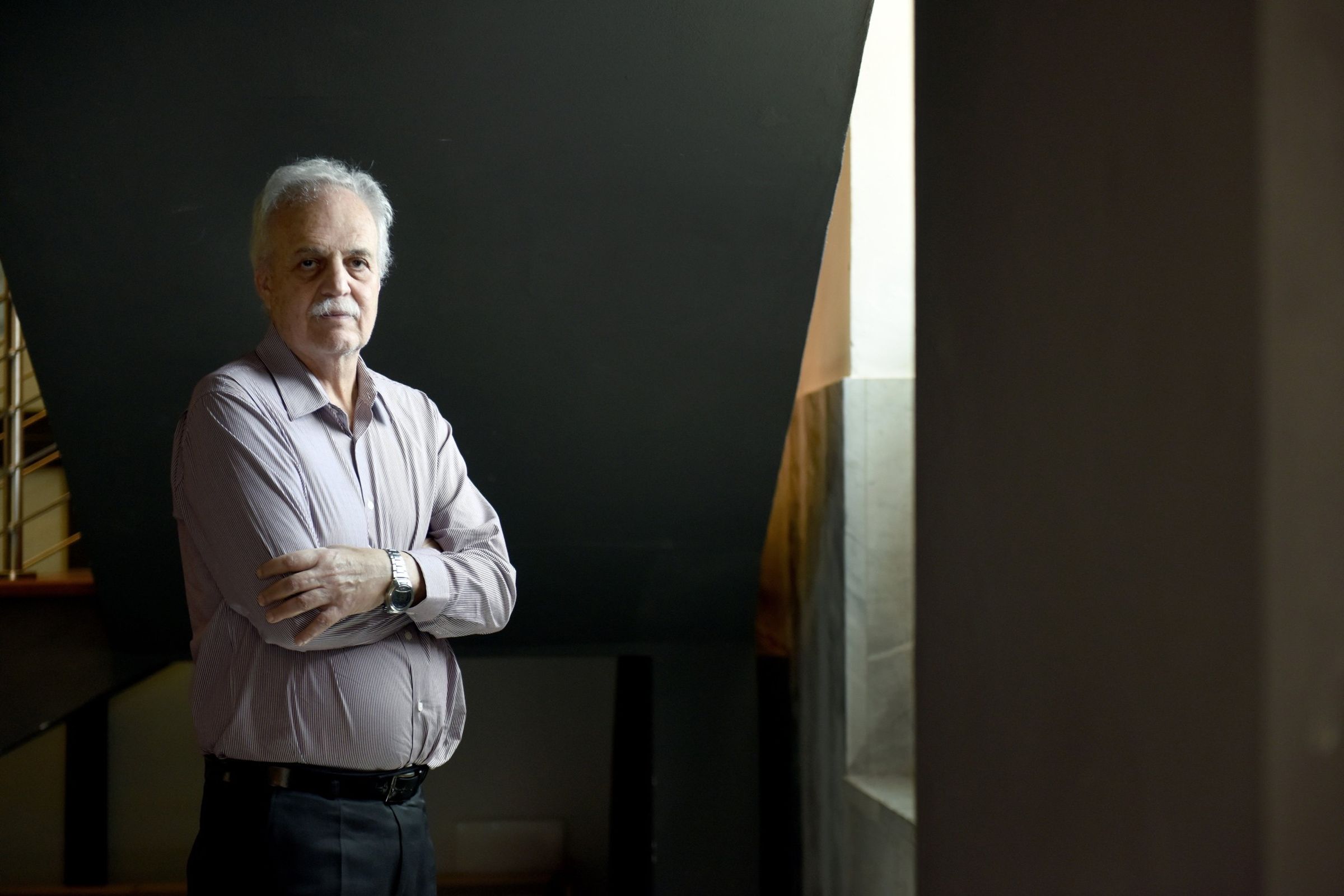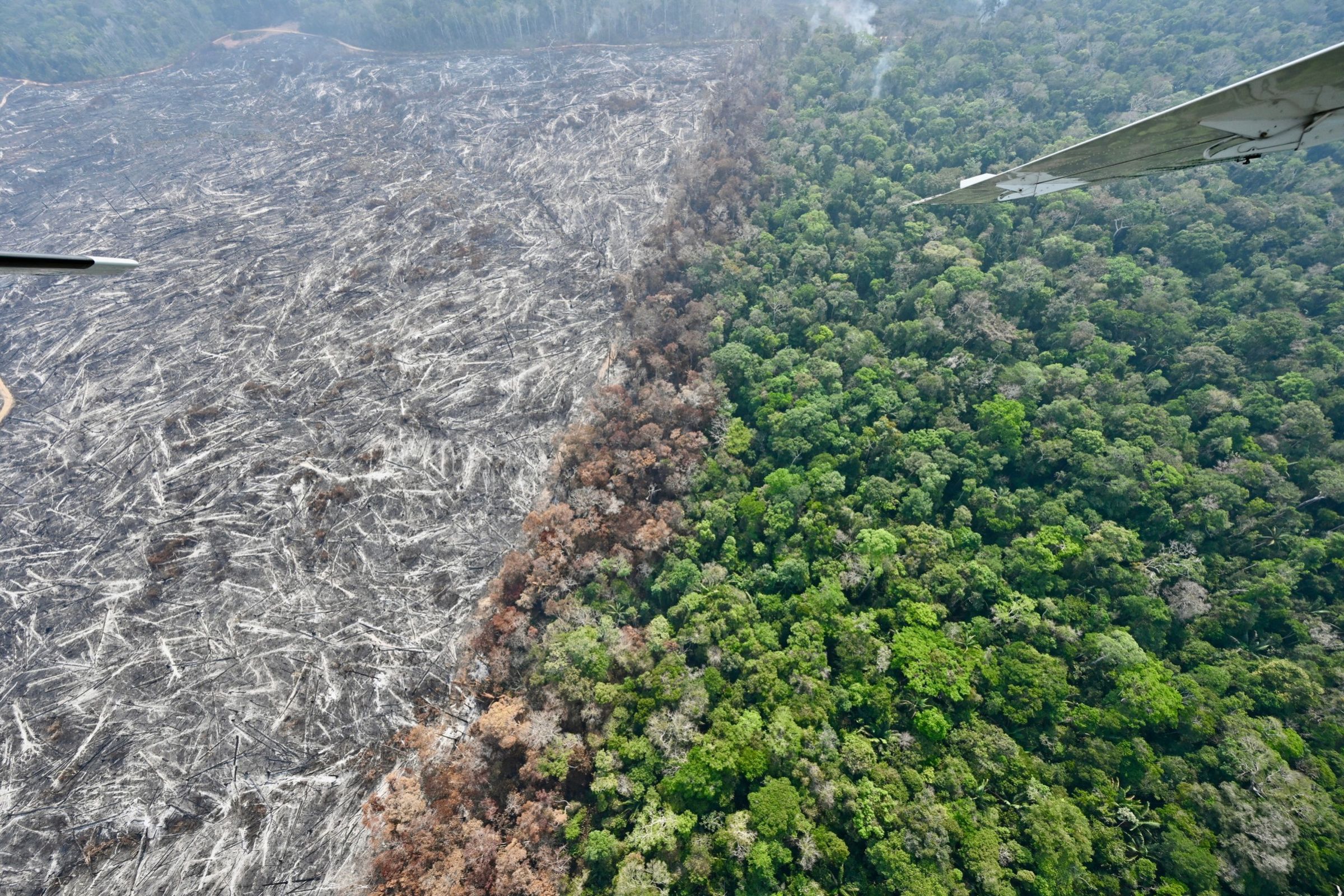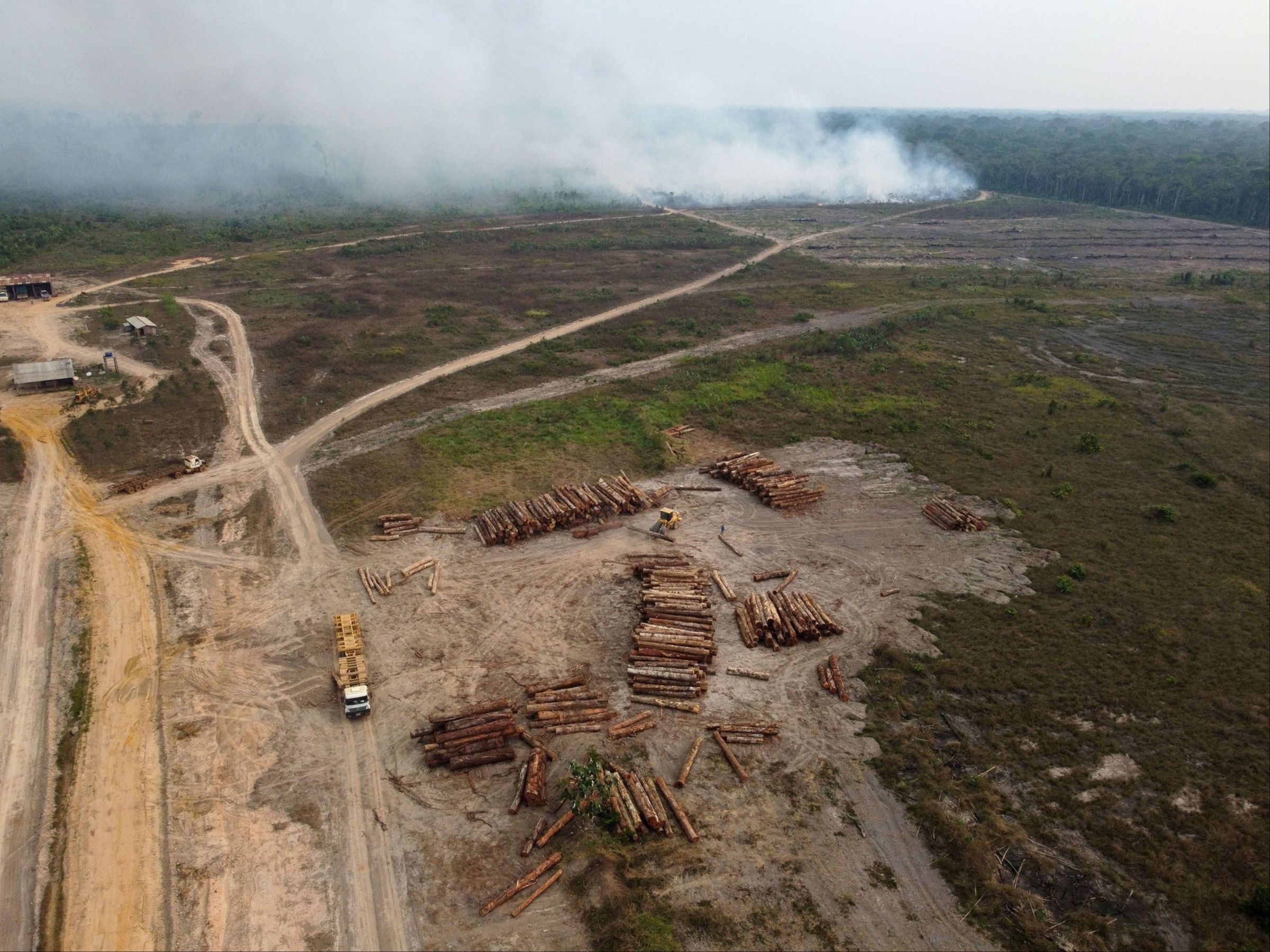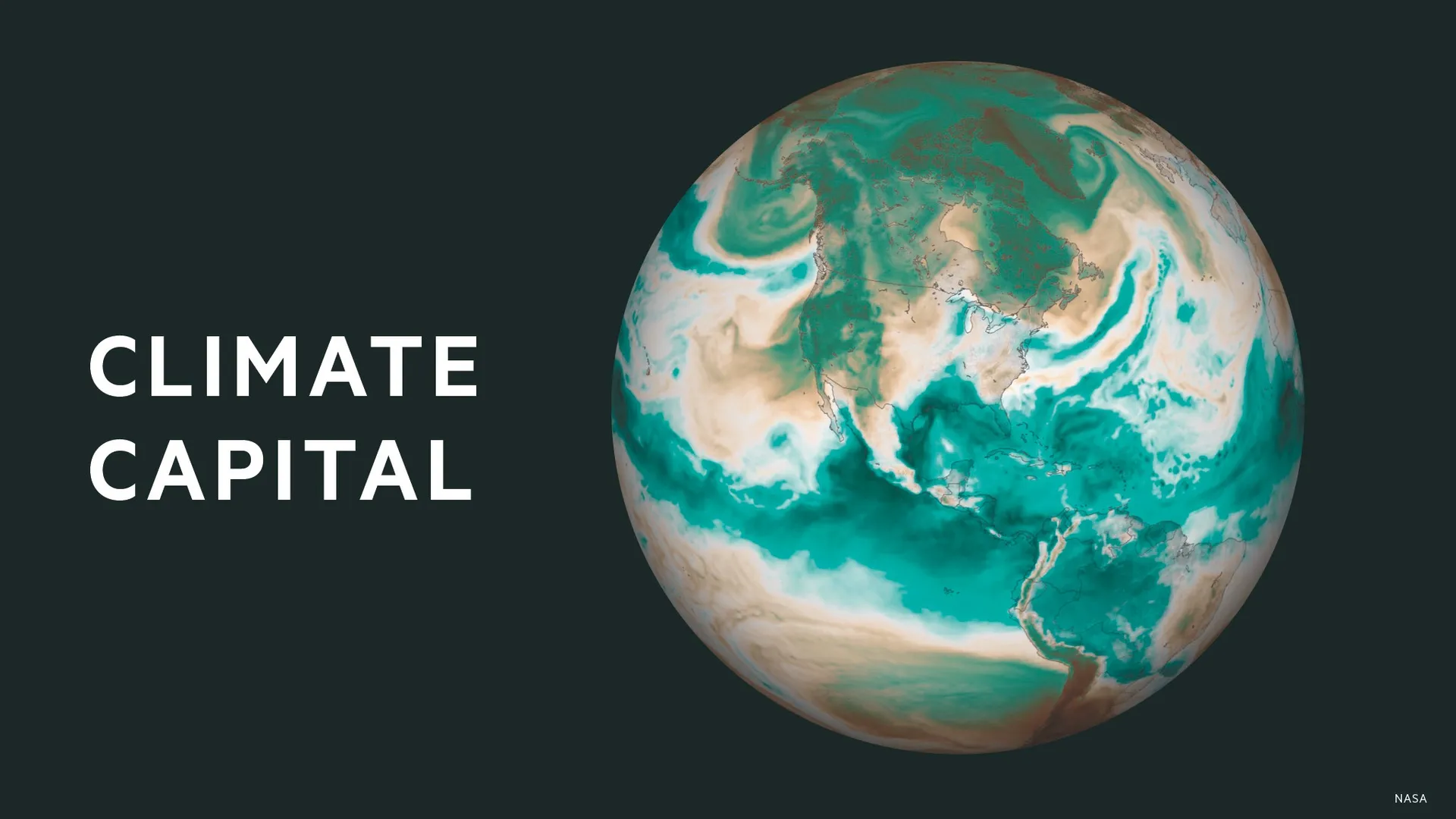
One of Brazil’s most celebrated scientists, Carlos Nobre is best known for his warnings of a “tipping point” in the Amazon: a critical threshold beyond which the world’s largest rainforest enters an irreversible collapse. He is in high demand when we meet shortly before the opening of COP30, the UN climate summit under way this week in the Amazonian port of Belém.
A global authority on the interactions between tropical rainforests and the climate, Nobre was a lead author of the UN’s Intergovernmental Panel on Climate Change (IPCC) that won a Nobel Peace Prize in 2007 for its reports on global warming. A few years ago, the UK’s Royal Society elected him the first Brazilian member of the scientific academy since Emperor Pedro II in the 19th century.
Roughly the size of the contiguous US, the Amazon biome has been called “the lungs of the Earth” because of its massive absorption of carbon dioxide, providing a buffer against climate change. But this vital role is increasingly under threat.
According to Nobre’s hypothesis, first formulated in 1990, if 20-25 per cent of the original area is deforested, or global temperatures rise 2-2.5C above pre-industrial levels, the biome will enter a feedback loop where it can no longer regenerate. In a process dubbed savannisation, lush canopies wither as the jungle dries out into parched grasslands with fewer species.
“If deforestation and global warming continue, the Amazon will reach the point of no return by 2050 at the latest,” he explains.
In this scenario, 50-70 per cent of the ecosystem could degrade by 2100, Nobre says, releasing a “gigantic amount of CO₂” — more than 250bn tonnes — into the atmosphere. That would make it “impossible” to keep global temperatures within 1.5 degrees, a goal of the 2015 Paris Agreement — the cornerstone of international efforts to combat planetary heating.
“Biodiversity degradation also poses a huge risk of epidemics and pandemics,” Nobre adds. “This is an enormous risk for the entire world.”
We are meeting a few minutes’ stroll from Nobre’s home and office in São José dos Campos, about 100km from the centre of the giant metropolis of São Paulo.
Once a sanatorium town, over the 20th century São José dos Campos became Latin America’s top aerospace hub. The city is home to planemaker Embraer, as well as Brazil’s National Institute for Space Research (INPE), whose activities include monitoring the Amazon via satellites. It was there that Nobre spent most of his career.
Today a researcher at the University of São Paulo, Nobre no longer conducts research in the Amazon (“I’m not young anymore”, the 74-year-old admits wistfully), but he has lost none of his zeal for saving the rainforest.
Nobre’s love of nature came early. He recalls a childhood trek with his father, a professional footballer with only four years of schooling, in the Atlantic Forest by the shores of São Paulo state. “We got on a boat and he took me around for about three hours,” he says with a smile. “We passed by little rivers and beautiful trees. It was a moment that really grabbed my attention.”
His father impressed the importance of preservation upon his children — Nobre has other siblings who are climate scientists too.
We have to go in this direction, otherwise after the 2050s Brazil will no longer be a major food producer
Talented in mathematics, the young Carlos studied electronic engineering at an institution run by the air force in São José dos Campos. His passion for the Amazon was born in the early 1970s at university, where in the summer holidays a professor took groups of students aboard an air force plane to locations across the region, including indigenous communities.
“I became so fascinated by the Amazon,” recounts Nobre. “I fell in love with it, because it was a time when the Amazon had no deforestation. It was beautiful”.
Brazil was then under a military dictatorship that sought to open up the rainforest with infrastructure, agriculture and settlement. “Deforestation hadn’t started, but it was the policy,” he says. “So of course I started to get very worried. And I put it in my head that I wanted to do research in the Amazon”.
After graduating, Nobre took a job at a research institute in the jungle city of Manaus, where a supervisor encouraged a switch to science. Following a PhD in meteorology at MIT he began working at INPE from 1983, specialising in mathematical climate modelling, with a brief interlude at the University of Maryland for a postdoc.
With about 18 per cent of the Amazon’s original area deforested, Nobre reckons the point of no return is now “much closer”. There are alarming portents. The Amazon basin registered its most severe drought on record between 2023 and 2024. In the south, the dry season is longer, rainfall is lower and temperatures higher, with certain areas in the biome’s south-east now exhaling more CO₂ than they inhale, explains Nobre. Wildfires, not a natural phenomenon in the rainforest, have also become more frequent and intense.

Another consequence of Amazon vegetation loss is less moisture released from trees to the massive air currents, described as “flying rivers” by meteorologists, that carry rainfall across swaths of South America.
Studies suggest even more distant impacts: “Decreasing rainfall in the Amazon could generate an atmospheric wave that propagates northward and induces droughts in California,” says Nobre. The same could happen in India, he adds, before a caveat: “But these are still scientific studies that need to be demonstrated.”
Having appreciated the American scientific spirit from close up, Nobre is all the more perplexed by the country’s environmental turn under President Donald Trump (who not long ago called climate change “the greatest con job ever”).
To prevent the planet from entering ecocide, we have to stop and explore what’s already being explored
“It’s a mystery to me,” he says. “The country which invested the most in climate science, a country with the largest number of climate scientists and very few scientists who deny [climate change], which contributed the most to the IPCC report — how is it possible for this country to elect a climate denier president? Then, eight years later, re-elect him?”
However, he does not despair and, counter-intuitively, believes that Washington’s stance will motivate other countries to take up the slack. “[They] will need to have a very ambitious goal of reducing emissions and greatly increasing the adaptive capacity of billions of people.”
Given the political backlash against net zero in rich nations, I am taken aback by his assertion that “science is winning the battle” against climate scepticism. Really?
Nobre reckons extreme weather events have proven a wake-up call to people: “For the first time in the decades we’ve been speaking about the risk, populations are now concerned and the number of deniers has diminished greatly.”
There is great respect in Brazilian academia towards Nobre, who inspired a generation of scientists. Yet not all agree with the implications of his magnum opus.
One recent paper claimed there was little evidence for a single tipping point across the entire Amazon basin, instead arguing that there are critical thresholds at regional and local levels. Some ecologists criticise the notion of savannisation in the Amazon, positing that it is harmful for efforts to preserve Brazil’s Cerrado biome, the world’s most biodiverse savannah.
Studies indicate that a large part of the Amazon would become a highly degraded savannah
Nobre pushes back against the criticisms. “Studies indicate that a large part of the Amazon would become a highly degraded savannah,” he responds.
However, there has been good news lately. Brazil’s President Luiz Inácio Lula da Silva has overseen a sharp drop in Amazon deforestation to its lowest level in 11 years. While praising the leftwinger’s environmental commitment and his proposal for a $125bn international fund for the preservation of tropical rainforests, Nobre says Brasília’s aim to eliminate illegal deforestation by 2030 should instead be a total ban.
This sounds unrealistic. Brazilian landowners are already legally obliged to preserve part of their property in its natural state (80 per cent in the Amazon forest, 20-35 per cent in the Cerrado). Tightening the rules would likely generate resistance from the powerful agribusiness lobby.
“We have to go in this direction, otherwise after the 2050s Brazil will no longer be a major food producer,” Nobre insists. Cattle ranching is the biggest driver of Amazon deforestation, which led the climatologist to go vegetarian. Other causes include illegal logging and mining.

Lula has also promoted oil exploration, including by the Amazon river estuary, sparking accusations of climate hypocrisy. Protesters including indigenous activists clashed with security at the COP30 venue this week, denouncing crude drilling in the region.
Asked about the government’s petroleum policy, Nobre sticks to generalities: “There’s no justification for new oil or coal mining anywhere in the world. Because to prevent the planet from entering ecocide, we have to stop and explore what’s already being explored.”
Nowadays he likes to combine science with action. After years of sounding doomsday alarms, Nobre had a change of approach in 2019. “I thought, I only talk about risks and never work on solutions. It’s a psychological problem of mine.”
This led to Amazônia 4.0, a project backing sustainable forest-based businesses that conserve or restore trees. “It’s to demonstrate the potential of value-adding and industrialisation of biodiversity,” says Nobre. Initiatives include a factory for indigenous people to produce chocolate from cupuaçu, an Amazonian fruit similar to cacao.
The scientist’s idealism remains undimmed. “The greatest pleasure for me is that the new generations are concerned and will have to assume leadership. In a decade from now, [Swedish climate activist] Greta Thunberg will begin to have great leadership,” he says. “Science showed the risk to my generation [but we] never stopped increasing emissions,” he adds.
And his personal legacy? “I will be the happiest person in the world if we save the Amazon [and then] all the other biomes in Brazil”. For all his foreboding forecasts, the hopefulness is a tonic to climate defeatism.
Michael Pooler is the FT’s Brazil correspondent, based in São Paulo
Climate Capital

Where climate change meets business, markets and politics. Explore the FT’s coverage here.
Are you curious about the FT’s environmental sustainability commitments? Find out more about our science-based targets here
Find out about our latest stories first — follow FT Weekend on Instagram, Bluesky and X, and sign up to receive the FT Weekend newsletter every Saturday morning